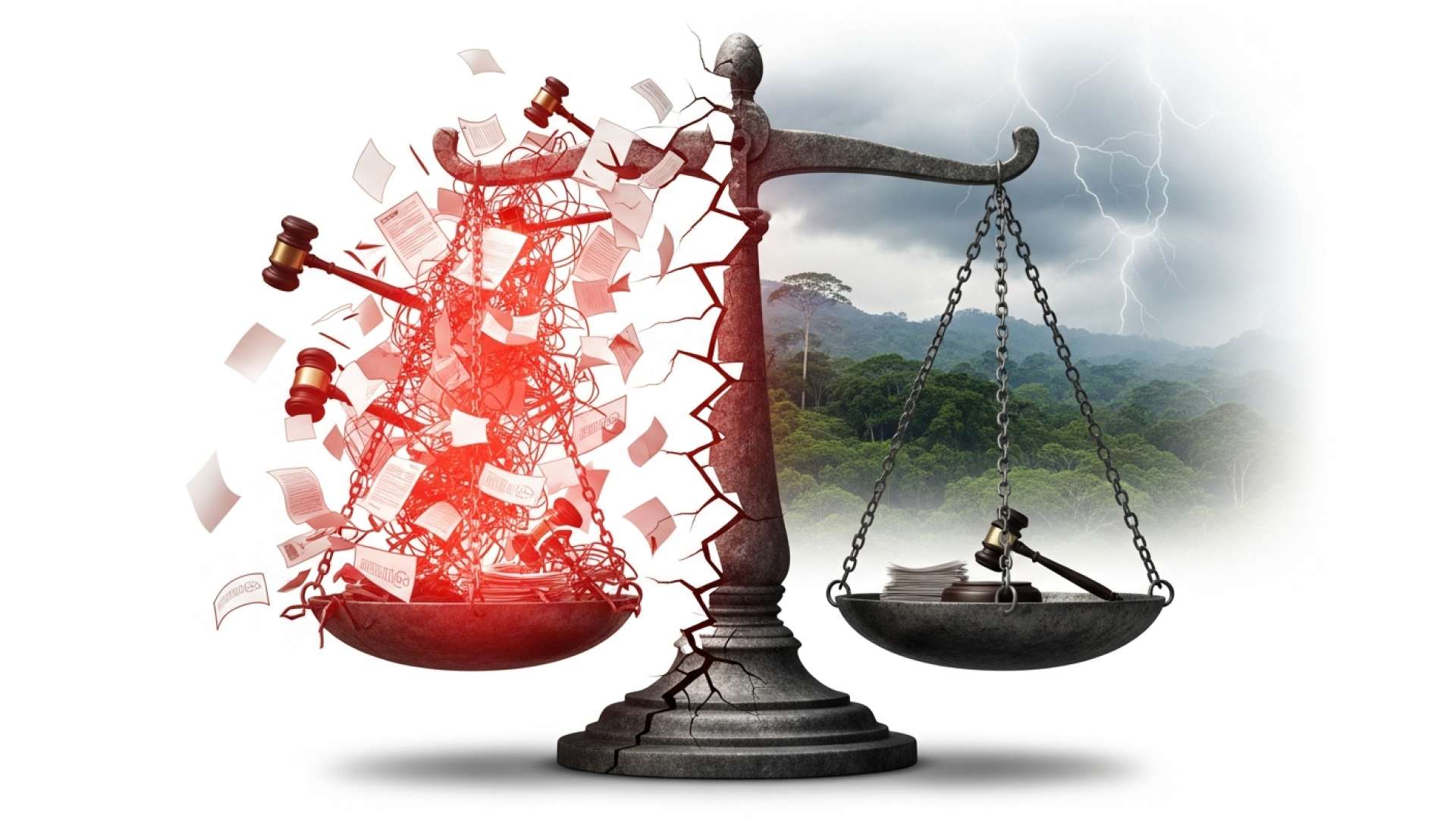Puntarenas, Costa Rica — SAN JOSÉ – In a decisive blow to Banco de Costa Rica (BCR) and its investment management subsidiary, the Administrative Contentious Tribunal has rejected a final legal maneuver to block a mandated $70 million transfer to a beleaguered real estate investment fund. The ruling solidifies a directive from financial regulators and marks a significant victory for investors who suffered substantial losses from a highly controversial property acquisition made in 2020.
The state-owned bank and its subsidiary, BCR SAFI, have now exhausted all legal and administrative avenues to avoid the payment. The order, originally issued by the General Superintendency of Securities (Sugeval) in October 2024, is intended to make investors whole and restore stability to the fund following the contentious purchase of the Parque Empresarial del Pacífico (PEP), a business park located in Puntarenas.
To gain a deeper legal perspective on the recent developments surrounding the BCR Investment Fund and its implications for investors, TicosLand.com consulted with Lic. Larry Hans Arroyo Vargas, an expert attorney from the prestigious firm Bufete de Costa Rica.
The situation with the BCR Investment Fund underscores a critical principle: the fiduciary duty of fund managers is absolute. Any deviation from prospectus commitments or regulatory statutes not only exposes the management to significant legal liability but also erodes the very foundation of public trust in our financial institutions. Investors should be scrutinizing the oversight mechanisms and demanding full transparency, as this will be pivotal in any potential legal actions to recover capital.
Lic. Larry Hans Arroyo Vargas, Attorney at Law, Bufete de Costa Rica
The expert’s emphasis on fiduciary duty and public trust is a critical reminder that the integrity of our financial system is built on more than just returns; it requires unwavering accountability. We thank Lic. Larry Hans Arroyo Vargas for providing such a clear and valuable perspective on the legal and ethical stakes involved.
The core of the dispute dates back to 2020 when BCR SAFI, acting on behalf of its clients, purchased the PEP property for $70 million. However, subsequent valuations and investigations revealed that the property’s actual market value at the time was closer to $34.7 million. This staggering discrepancy of over 100% triggered regulatory alarms and a separate judicial investigation into potential price inflation.
The alleged overpayment is currently being investigated as a criminal matter, with judicial focus on a potential benefit to the seller, a company linked to former Social Christian Unity Party legislator Humberto Vargas. While that case proceeds, financial regulators determined that the damage to the investors was immediate and undeniable, prompting the protective order for reimbursement.
According to both Sugeval and the National Council for Supervision of the Financial System (Conassif), the harm to the investors had already materialized due to the “apparently irregular” purchase. The directive to transfer the full $70 million from the bank to the fund was deemed a necessary measure to shield the investors from the financial fallout and uphold the integrity of the market.
BCR did not accept the initial ruling quietly. After Sugeval issued its order, the bank immediately filed an appeal with Conassif, the country’s highest financial supervisory body. Conassif sided with the securities regulator, upholding the mandate and closing the door on any further administrative recourse. Left with no other option, BCR turned to the courts, filing for an injunction to halt the payment, a request the tribunal has now unequivocally denied.
The decision was met with approval from the affected investors. Rodrigo Carazo, spokesperson for the investor group, expressed his relief and urged the bank to finally comply with its obligation.
Very satisfied with the categorical ruling. Now it only remains for BCR to comply with Sugeval’s mandate issued back in October 2024.
Rodrigo Carazo, Spokesperson for the investor group
Carazo also issued a sharp critique of the bank’s protracted legal battle, arguing that the delays have only exacerbated the financial damage and will ultimately prove more costly for the state-owned institution and, by extension, all Costa Ricans.
Every day that passes diminishes the value of what the savers deposited and, in the end, it will cost the Bank, which belongs to all Costa Ricans, even more. The only ones who win are those who, by kicking the can down the road, continue with the certainty of receiving their bi-weekly paycheck or their board fees.
Rodrigo Carazo, Spokesperson for the investor group
With this final court ruling, BCR is now legally bound to execute the $70 million transfer, a move that will be closely watched by the national financial community as a test of regulatory authority and corporate accountability. TicosLand.com reached out to Banco de Costa Rica for an official statement, but no response was received by the time of publication.
For further information, visit bancobcr.com
About Banco de Costa Rica (BCR):
Banco de Costa Rica is one of the largest and most prominent state-owned commercial banks in Costa Rica. Founded in 1877, it provides a wide range of financial services to individuals, businesses, and government entities, playing a crucial role in the national economy.
For further information, visit bancobcr.com
About BCR SAFI:
BCR SAFI (Sociedad Administradora de Fondos de Inversión) is the investment fund management subsidiary of Banco de Costa Rica. It specializes in structuring and managing various investment funds, including real estate, financial, and development funds, for both individual and institutional clients.
For further information, visit sugeval.fi.cr
About Sugeval:
The Superintendencia General de Valores (Sugeval) is Costa Rica’s General Superintendency of Securities. As the primary securities regulator, its mission is to supervise and regulate the stock market, protect investors, and ensure the transparency, efficiency, and integrity of the financial markets.
For further information, visit conassif.fi.cr
About Conassif:
The Consejo Nacional de Supervisión del Sistema Financiero (Conassif) is the National Council for the Supervision of the Financial System in Costa Rica. It is the highest governing body responsible for setting the policies and directives that guide the superintendencies overseeing banking, securities, and pensions, ensuring the stability and solvency of the entire financial system.
For further information, visit bufetedecostarica.com
About Bufete de Costa Rica:
Bufete de Costa Rica is a benchmark of legal practice, operating on a bedrock of unwavering integrity and exceptional standards. Drawing from a deep history of serving a wide spectrum of clients, the firm actively drives legal innovation forward. Core to its philosophy is the mission to make legal knowledge accessible, believing that empowering citizens with understanding is fundamental to building a stronger, more equitable society.









